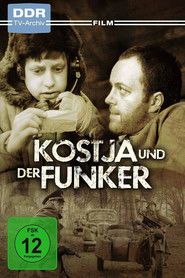detail profile wolfgang lohse

Info Pribadi
Peran Yang Di Mainkan Wolfgang Lohse
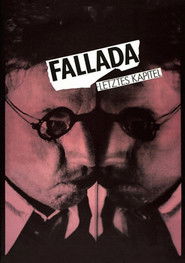 This biographical film is set in 1937...
This biographical film is set in 1937...Fallada: The Last Chapter 1988
This biographical film is set in 1937, with Fallada suffering the effects of living under a microscope. The film details his decline, as he is intermittently imprisoned and threatened in order to motivate him to write for the Fatherland. Even the attention of his kind, patient wife and loving children begin to feel oppressive to him. This is one of the few films to take a serious, in-depth look at the tribulations of a creative artist pulled in all different directions by the real world.
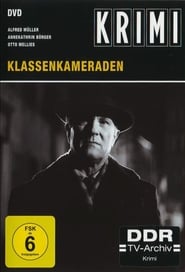 The criminalist Hannes Bergemann tries to...
The criminalist Hannes Bergemann tries to...Klassenkameraden 1984
The criminalist Hannes Bergemann tries to blackmail the city where he spent his youth. After many years returning to the familiar places of his childhood, he hopes to meet again his old friends, especially Fred, Helmuth and Richard, with whom he had a close childhood friendship. When confronted with a murder shortly after his arrival and given the task of investigating it, he has the painful experience that his friends are involved in the case.
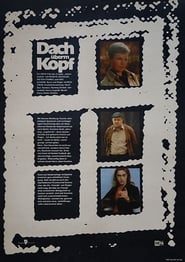 Karoline Gluth is approaching forty has...
Karoline Gluth is approaching forty has...Dach überm Kopf 1980
Karoline Gluth is approaching forty, has an 18-year-old son who is studying and is therefore independent. She decides to start a new life and says goodbye to the family inn on the island of Rügen, where she earned a good living as a cook. She buys a little house on the outskirts of Berlin - based on a photo. The reality, however, looks less favourable than the picture. The house is close to collapse and has an illegal occupant, Christian. She evicts him, but he helps her through the jungle of organising tradesmen and materials. In the process, she meets construction brigadier Herbert Kotbuß, clashes with him - and impresses him. Karoline struggles through, the money runs out, she even has to sell her car, and in the end the house is still pretty much a patchwork. But she has realised her ambition for herself - a new independent life begins.
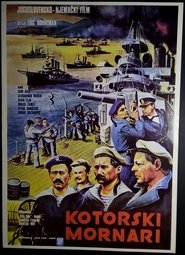 In February of 1918 in Boka Kotorska...
In February of 1918 in Boka Kotorska...Cattaro Mutiny 1980
In February of 1918, in Boka Kotorska, the greatest uprising of Austrian sailors broke out. Forty warships, with 6.000 sailors, rebelled against the Austrian Monarchy. The uprising was bloodily crushed after two days, and it's leaders shot.
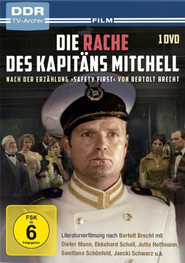 The Astoria an English luxury liner...
The Astoria an English luxury liner...Die Rache des Kapitäns Mitchell 1979
The "Astoria", an English luxury liner, collides with a freighter shortly before the end of its voyage and threatens to sink. Captain Mitchell, successful and envied, sets in motion an expensive rescue operation. He manages to avert a catastrophe and bring the passengers and the ship to safety. But the shipowner considers the operation excessive, calls Mitchell a coward and fires him. His career seems to be over. When his friends and his fiancée also make fun of him, he devises a cunning plan of revenge.
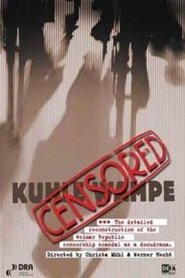 A detailed reconstruction of the censorship...
A detailed reconstruction of the censorship...Censored: Kuhle Wampe 1975
A detailed reconstruction of the censorship case against the landmark Weimar-era communist film, Kuhle Wampe, or Who Owns the World? (1932). Directed by Slatan Dudow, the crew and cast included left-wing luminaries, such as playwright Bertolt Brecht, composer Hanns Eisler and balladeer Ernst Busch. The film was the subject of vehement disputes and was banned twice for revolutionary and communist tendencies that were perceived to threaten the state. About 230 meters of the original film fell victim to the censor’s shears. This historic censorship case was argued over the course of three sessions. Censored: Kuhle Wampe re-enacts the censorship hearings, based on original minutes and documents, as well as personal records of the case. In addition to footage from the original film, this docudrama includes original clips of Berlin in the 1920s and '30s and short testimonies, filmed in the 1970s, with some of the actors involved in the original Kuhle Wampe film production.
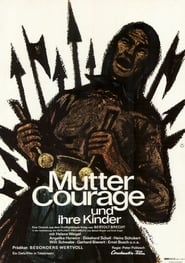 During the Thirty Years War the...
During the Thirty Years War the...Mother Courage and Her Children 1961
During the Thirty Years' War, the camp-follower Anna Fierling, called "Mother Courage", travels the length and breadth of Europe with her covered wagon. She does not care if it's Catholics or Protestants she trades with as long as business thrives. She loses her three children as a result of the war: bold and spirited Eilif, sincere and upright Swiss Cheese and mute Katrin, who saves the children of Halle by beating a drum on a farmstead roof In wartime, the Fierling children's virtues prove to be deadly. Yet, Mother Courage, remains incorrigible. She will not have anyone "spoil the war" for her and so sets out once more after the soldiers with her wagon.
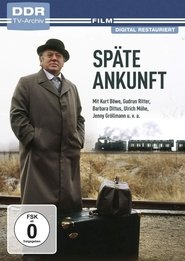 In 1896 the Berlin noble doctor Dr...
In 1896 the Berlin noble doctor Dr...